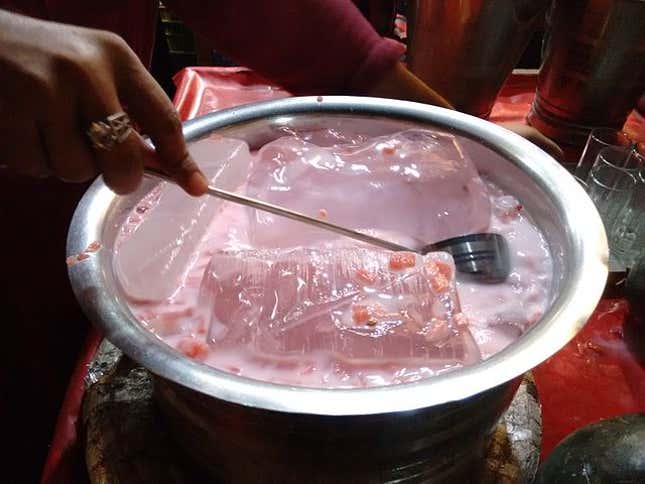An Indian court has directed Amazon to delist the Pakistani versions of Rooh Afza, a widely popular Indian summer drink concentrate.
The Delhi high court, on Sept. 7, cited food and safety standards to pronounce its judgment on the product that “has been consumed by the Indian public for more than a century now.”
“It is surprising that an imported product is being sold on Amazon without complete details of the manufacturer being disclosed,” the court said.
A Unani formulation of rose, mint, coriander, and wine-grape raisins, Rooh Afza is a quintessential Indian household drink and is produced by the Hamdard National Foundation of Delhi.
However, Hamdard approached the court earlier saying some of the products listed as Rooh Afza on Amazon India were not manufactured by it. They were made by Pakistani firms but that was not revealed on the packaging, it said.
“The listings of infringing Rooh Afza products on the website not originating from the plaintiffs (Hamdard National Foundation) shall be removed within 48 hours,” the high court said.
Amazon has reportedly complied with the order, removing Pakistan-made Rooh Afzas.
Whose Rooh Afza is it anyway?

Rooh Afza’s history dates back to 1907.
In 1906, Hakeem Hafiz Abdul Majeed—a hakeem is a practitioner of Unani medicine—set up Hamdard Laboratories in Old Delhi. His first breakthrough product, Sharbat RoohAfza, was out a year later.
Soon, he added more products, mostly of medicinal value.
Majeed, however, died in 1922. In 1947, his younger son, Hadeem Mohammed Said, migrated to Pakistan and set up Hamdard in the new country. The hakeem’s elder son Abdul Hameed stayed back in India and began to scale up his father’s firm.
Today, Hamdard National Foundation owns the rights to Rooh Afza, while Hamdard Laboratories (Waqf) manufactures it in Pakistan.
